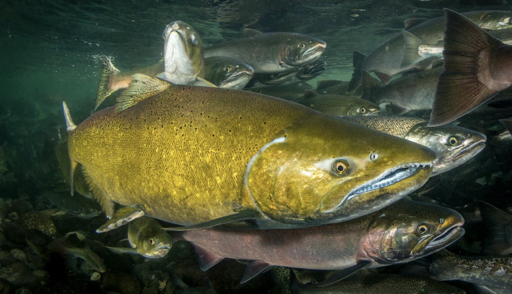A new study links widespread deficiency of vitamin B1, or thiamine, among California Chinook salmon to their deaths. This adds yet another challenge for this iconic species whose population is already imperiled by climate change, habitat loss and overfishing. Salmon serve a critical ecological role in the Pacific Northwest, transporting marine nutrients from the ocean to the rivers where they were born when they return to lay eggs. The dual life in the ocean and rivers leaves them vulnerable to disturbances in both habitats: from ocean acidification and shifting food webs to rivers being blocked by dams and made too warm by climate change. “They have like a hundred challenges that they’re facing,” Nate Mantua, a scientist with the National Oceanic and Atmospheric Administration (NOAA), told Mongabay in a video interview. “If you add thiamine deficiency on to all these other big problems, you start to really threaten the species, its ability to exist.” Mantua and his colleagues began investigating thiamine deficiency in 2020 when several California salmon hatcheries began reporting odd behaviors in the fish, including swimming in circles and dying in large numbers. The researchers confirmed thiamine’s role after sick fish placed in a thiamine-enriched bath got better within hours. To better understand the scale of the problem, the researchers collected eggs and embryos from 135 spawning Chinook salmon (Oncorhynchus tshawytscha). They injected thiamine into a treatment group of female salmon 4-10 weeks before they laid eggs while the control group received saline. No baby fish from the treated group…This article was originally published on Mongabay
From Conservation news via this RSS feed


